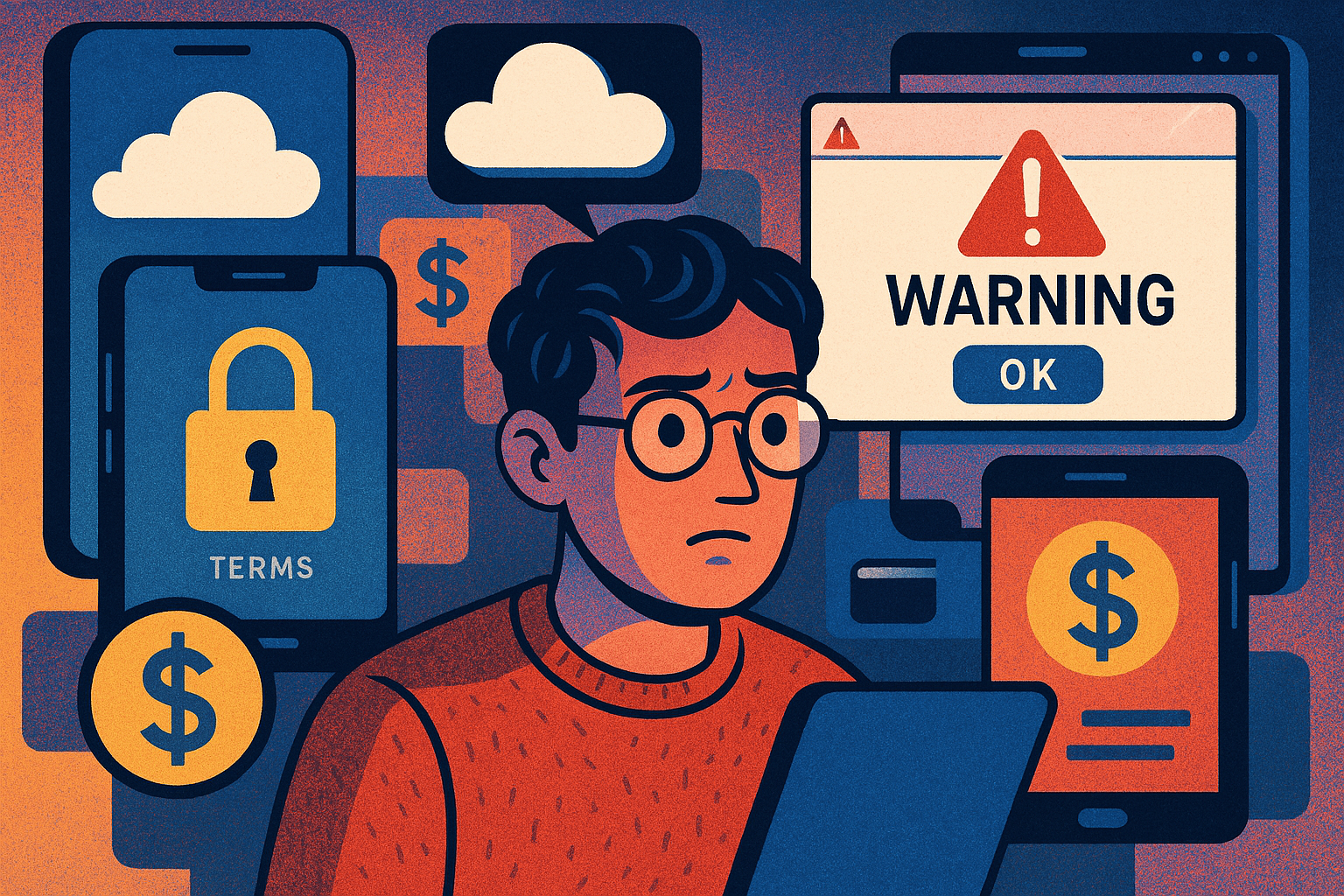10 Big Tech Scams That Are Widely Accepted Now
Introduction
Technology has made life more efficient—but it hasn’t come without a cost. While most users focus on the convenience, few realize that some of the most trusted tech companies engage in practices that would be considered deceptive in any other industry, often resembling tech scams. These aren’t obvious frauds. Instead, they’re subtle, often legal tactics that have become standard.
Below are 10 big tech scams that, surprisingly, many people still accept as normal.
1. Planned Obsolescence
First on the list is planned obsolescence. Many manufacturers intentionally design devices to wear out or become outdated. Instead of building long-lasting hardware, they release updates that slow down older models. For example, Apple was exposed for throttling performance on aging iPhones. As a result, customers were nudged to upgrade sooner than necessary.
2. Excessive Subscription Models
Years ago, you could buy software once and use it indefinitely. Today, however, tech companies have shifted to subscription-only models. This change locks users into recurring payments. For instance, Adobe’s Creative Cloud requires monthly fees, even though similar tools were previously available for a one-time purchase.
3. Data Hoarding and Sale
Additionally, data collection has become a billion-dollar industry. Big tech companies gather enormous amounts of personal data—from your search history to your location. Then, they sell this information to advertisers. Google and Meta have both come under fire for these practices. Unfortunately, most users accept this as the price of using free services.
4. Dark Patterns in UX Design
Another common scam is the use of dark patterns—deceptive design tactics that push users to take unwanted actions. For example, you might “accidentally” sign up for a mailing list or agree to data tracking. These tricks aren’t accidents; they are carefully planned. According to the FTC, this tactic is growing across websites and apps.
5. Locked Ecosystems
Tech companies often build closed ecosystems to force brand loyalty. If you own an iPhone, you’re expected to use AirPods, Lightning cables, and Apple-approved accessories. While it may seem convenient, this approach limits your choices. For example, Apple’s proprietary Lightning port prevents users from switching to universal alternatives.
6. Fake Discounts and Inflated Prices
Moreover, online retailers frequently inflate prices just before a sale. This way, they make discounts appear more generous than they are. Platforms like Amazon have faced criticism for this misleading tactic. Always compare prices across platforms before buying.
7. Overpriced Extended Warranties
Retailers aggressively push extended warranties, especially for electronics. However, these warranties often cover very little—and many buyers never use them. In most cases, you’re better off skipping them. Consumer Reports confirms that these plans benefit sellers more than consumers.
8. In-App Purchases in Children’s Games
What may look like a free game for kids can quickly turn into a trap of in-app purchases. Children tap buttons and unlock features, sometimes spending real money without understanding. Apple and Google have both settled lawsuits over unauthorized charges made by minors.
9. Misleading “Unlimited” Data Plans
While “unlimited” sounds appealing, mobile providers often include hidden limits. After using a certain amount of data, your speed may drop significantly. AT&T and Verizon have both been penalized for misleading their customers with throttled plans.
10. Fake Reviews and Ratings
Lastly, online reviews are not always genuine. Companies pay for fake five-star ratings to boost product rankings. As a result, consumers are misled into purchasing low-quality items. Amazon has tried to crack down on fake reviews, but the problem still persists across the platform.
Conclusion
Even though these tech scams are legal, they are far from ethical. They take advantage of consumers’ trust and limited knowledge of how the industry works. As users, we need to stay aware and make informed decisions. After all, just because something is common doesn’t mean it’s right.




Comments are closed